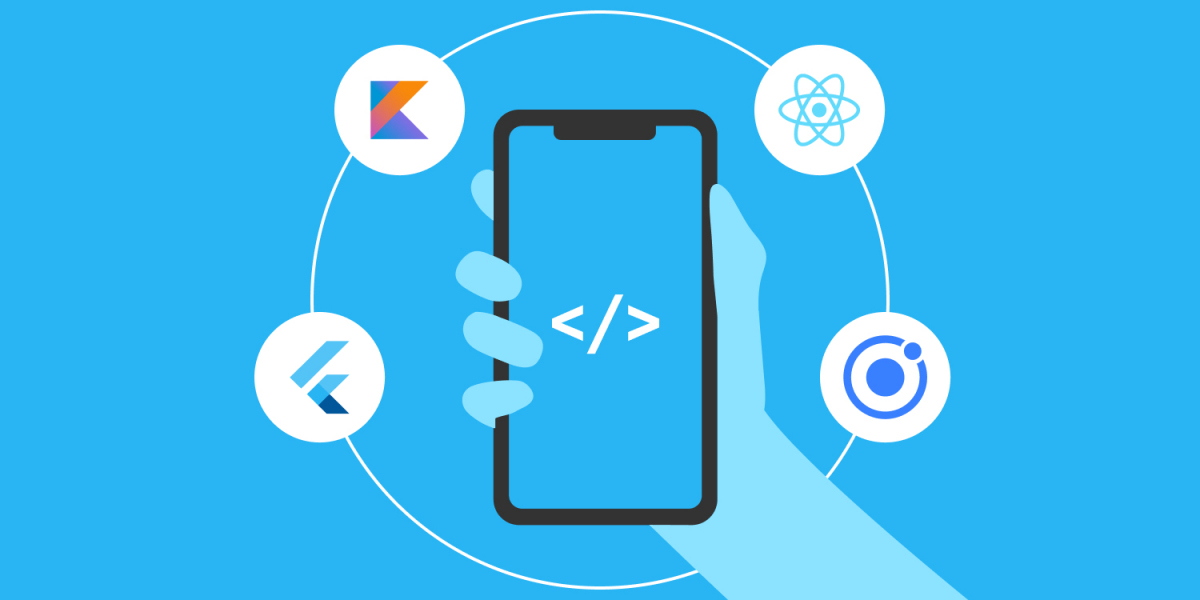In the ever-evolving world of mobile app development, cross-platform frameworks have gained significant traction. These frameworks enable developers to create applications that run seamlessly on multiple platforms, such as iOS and Android, from a single codebase. This not only saves time and resources but also ensures a consistent user experience across devices. In this blog, we will explore the top cross-platform app development frameworks to watch this year, and how they are transforming the landscape of mobile app development.
The Importance of Cross-Platform App Development
Cross-platform app development offers several advantages over native app development. It allows developers to write code once and deploy it on various platforms, reducing development time and costs. This approach also facilitates easier maintenance and updates since changes need to be made only once. For businesses seeking to maximize their reach and efficiency, cross-platform frameworks are a compelling choice.
Benefits of Cross-Platform Development Frameworks
- Cost Efficiency: Developing a single codebase reduces costs associated with building and maintaining separate apps for different platforms.
- Faster Time-to-Market: With reusable code, apps can be developed and launched more quickly.
- Consistency Across Platforms: Ensures a uniform look and feel across iOS and Android devices.
- Ease of Maintenance: Updates and bug fixes can be implemented in one place and reflected across all platforms.
Top Cross-Platform App Development Frameworks for 2024
1. Flutter
Overview
Flutter, developed by Google, is one of the most popular cross-platform app development frameworks available today. It uses the Dart programming language and provides a rich set of pre-designed widgets that allow developers to create visually appealing apps with ease.
Key Features
- Hot Reload: Allows developers to see changes instantly without restarting the app.
- High Performance: Compiles to native code, which ensures smooth performance.
- Customizable Widgets: Offers a wide range of customizable widgets for building complex UIs.
Why It’s Trending
Flutter's growing popularity can be attributed to its flexibility and performance. It allows for rapid development and offers a highly customizable user interface, making it an excellent choice for both startups and established companies looking for top-tier custom website development services.
2. React Native
Overview
React Native, developed by Facebook, has been a game-changer in cross-platform app development. It allows developers to use JavaScript and React to build mobile apps that work on both iOS and Android.
Key Features
- Reusable Components: Facilitates the reuse of components, speeding up development.
- Live and Hot Reloading: Enhances development speed by enabling real-time feedback.
- Strong Community Support: A large community provides numerous resources and third-party libraries.
Why It’s Trending
React Native’s ability to deliver native-like performance and its robust community support make it a preferred choice among developers. Its integration with popular JavaScript libraries and tools also enhances its appeal, making it a top contender for software development companies looking to streamline their app development processes.
3. Xamarin
Overview
Xamarin, a Microsoft product, is a well-established cross-platform framework that uses C# and .NET to create apps for Android, iOS, and Windows. It integrates well with Microsoft’s ecosystem, making it a popular choice for developers in that environment.
Key Features
- Single Codebase: Write code once and run it on multiple platforms.
- Access to Native APIs: Provides access to platform-specific APIs, allowing for high performance and native-like experiences.
- Integration with Visual Studio: Seamless integration with Visual Studio enhances productivity.
Why It’s Trending
Xamarin’s deep integration with the Microsoft ecosystem and its support for a single codebase across multiple platforms make it a valuable tool for enterprises and software development companies focused on leveraging existing technology stacks.
4. Ionic
Overview
Ionic is a hybrid app development framework that uses web technologies like HTML, CSS, and JavaScript. It is built on top of Angular and provides a library of pre-designed components and themes.
Key Features
- Web Technologies: Utilizes familiar web technologies for app development.
- UI Components: Offers a wide range of UI components and themes.
- Compatibility with Angular: Integrates well with Angular for added functionality.
Why It’s Trending
Ionic’s use of web technologies and its extensive library of UI components make it an attractive option for developers who want to leverage their existing web development skills in the mobile app domain. Its compatibility with Angular also adds to its appeal for software development companies working with Angular-based projects.
5. NativeScript
Overview
NativeScript is an open-source framework that allows developers to build native mobile apps using JavaScript, TypeScript, or Angular. It provides direct access to native APIs, enabling the creation of high-performance apps.
Key Features
- Direct Access to Native APIs: Allows for full use of native capabilities.
- Cross-Platform Compatibility: Build apps for both iOS and Android from a single codebase.
- Integration with Angular and Vue: Supports popular frameworks for building modern web applications.
Why It’s Trending
NativeScript’s ability to access native APIs directly and its support for popular JavaScript frameworks make it a powerful tool for developers seeking to build high-performance apps with a native look and feel.
Choosing the Right Framework for Your Project
Factors to Consider
When selecting a cross-platform app development framework, several factors should be taken into account:
- Project Requirements: Determine if the framework meets the specific needs of your project, including performance, user interface, and platform-specific features.
- Development Skills: Choose a framework that aligns with your team’s expertise and existing technology stack.
- Community Support: Opt for a framework with strong community support and a wealth of resources to aid in development.
Working with a Software Development Company
For businesses looking to leverage cross-platform app development frameworks, partnering with a software development company can provide significant advantages. These companies have the expertise and experience to navigate the complexities of cross-platform development and deliver high-quality, scalable solutions. Whether you need custom app development or top-tier custom website development services, working with a professional team ensures that your project is handled with the utmost care and precision.
Conclusion
Cross-platform app development continues to evolve, offering developers a range of powerful frameworks to choose from. Whether you opt for Flutter’s flexible widgets, React Native’s reusable components, Xamarin’s integration with Microsoft technologies, Ionic’s web technology-based approach, or NativeScript’s native API access, each framework has its unique strengths. By considering your project’s requirements and partnering with a skilled software development company, you can leverage these frameworks to build high-quality, cross-platform applications that meet your business goals.
As the landscape of app development progresses, staying updated with the latest frameworks and technologies is essential for success. Embrace the future of app development with the right tools and expertise, and watch your ideas come to life on multiple platforms seamlessly.









